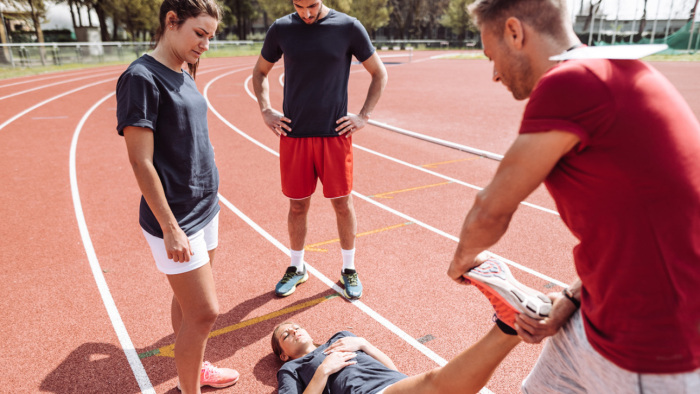
What Are Heat Cramps and How Can You Prevent Them?
The sun's harsh rays and intense workout or outdoor work can cause your muscles to stiffen suddenly. Sudden muscle cramping typically affects your abdomen or legs. The muscle cramps you experience are heat cramps which indicate your body needs a rest period.
The initial symptom of body heat stress becomes noticeable when you experience heat cramps. Knowledge about the causes and proper management of these symptoms enables you to protect yourself from more serious heat-related illnesses.
So, What Exactly Are Heat Cramps?
Heat cramps occur as sudden intense muscle spasms that affect most people during or after vigorous physical work under hot weather conditions. The most susceptible muscles tend to be the ones which receive heavy usage including calves and thighs and arms and stomach muscles.
Muscle cramps occur when your body loses excessive amounts of water and essential minerals such as sodium and potassium during intense sweating. When your muscle sodium and potassium levels decrease your muscles begin to malfunction which causes cramping.
Common Triggers
The primary reason behind this condition involves dehydration together with the depletion of essential electrolytes. The following elements increase your susceptibility to heat cramps:
- Hard exercise during hot humid weather conditions
- Not consuming enough water either before or during physical activities.
- Wearing clothing that traps heat
- The consumption of alcohol and caffeine accelerates dehydration in the body.
- New heat exposure risks develop for those who start exercising during summer months.
How to Spot the Symptoms
The primary signs of heat cramps include both muscle spasms and pain alongside other symptoms including:
- Muscle twitching or tightness
- Heavy sweating
- Feeling unusually tired or weak
- Sometimes even mild dizziness or nausea
The symptoms usually remain treatable but they indicate a potential issue. When you fail to listen to your body signals and continue your activities you face the risk of developing heat exhaustion or heat stroke.
What to Do When Cramps Hit
The most effective response to a muscle cramp requires you to stop right away. Seek a shaded location or enter a building whenever possible.
Then:
- Drink fluids—water is good, but a sports drink with electrolytes is even better if you’ve been sweating a lot.
- The affected muscle area should receive both gentle stretching and massaging treatment. Avoid anything too forceful.
- Take advantage of a cold cloth for cooling down and consider a brief cool shower when shower facilities are available.
- Take a rest until your symptoms disappear completely. Avoid resuming physical activity at a rapid pace.
Tips for Preventing Heat Cramps
The prevention of heat cramps depends on several factors which makes them mostly preventable. The following steps will help you reduce your risk of developing heat cramps:
- Begin hydrating with water before exercise and continue to drink throughout your physical activity.
- When you anticipate heavy sweating you should use an electrolyte-balanced drink.
- Choose lightweight clothing with breathable fabric to let your body regulate its temperature effectively.
- Use cooling products like cooling vests, cooling shirts, cooling headgear or cooling towels
- The best time to conduct workouts or outdoor activities should be during the cooler morning or evening periods.
- Your body requires time to become accustomed to heat exposure when you are new to warm temperatures.
Final Thoughts
Heat cramps appear harmless at first but they serve as the body's first alert signal which you should never dismiss. Your body signals through these symptoms that it faces potential overheating alongside dehydration issues. Summer activities remain safe for your health when you listen to your body signals and maintain proper hydration along with scheduled breaks.
Take care out there—and listen to what your muscles are telling you.